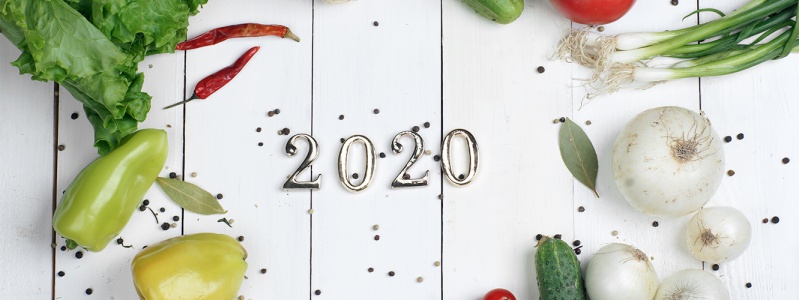As 2020 unfolds we make our annual predictions for this year’s key food trends
It’s fair to say that beyond the hype for Pacific Rim fusion cuisine, the buzz (no pun intended) for CBD oil (derived from cannabis hemp but without the psychoactive ingredient) in cooking, and the plethora of contenders for the latest, greatest ‘super food’ ingredients, from Maqui Berries to Tiger Nuts, last years biggest new trend was doubtless the rise of vegan and vegetarian ‘meatless meat’ products.
From the Impossible Burger (now available in Burger King) to the range of products from market pioneers Beyond Meat (now available right here at Maws), the demand for meat-free products that almost perfectly mimic the textures and flavours of meaty staples such as burgers and sausages was doubtlessly the top the food story of 2019.
This trend continues to be driven in the burgeoning commitment of many omnivores to consciously cut down their weekly meat intake for environmental and welfare reasons, and this upsurge is driving further interest in vegetarianism and veganism, which in turn is providing many of the directions for this year’s forth coming food trends.
Spreading Further Afield
One of the best examples of this is the continuing search for alternative ingredients for everyday staples. Thanks to the meteoric rise in demand for soya-based products around the world, growth in the soya farming industries of the largest producing countries (such as Argentina and Brazil) has quadrupled in the last 20 years, converting vast areas of tropical forest and precious natural habitats into mono-crop farmland.
This year we expect to see increasing enthusiasm for a whole palette of soya alternatives, with many brands already experimenting with mung bean, hempseed, golden chorella, and avocado, as replacements for the ubiquitous soya bean.
The range of ingredients used in non-dairy spreads is also set to expand, and once again this is thanks to many brands meeting rising consumer demand for products free from palm oil (another of the world’s largest natural habitat destroying mono-crops) so although the popular demand for nut butters will doubtless continue, pumpkin butter is also set for a popular surge.
Changing Staples
Other staples of our store cupboards that have remained that have been considered basic fundamentals for centuries are also set for competition from some interesting alternatives, with two of the main being flour and sugar.
Many of us already use things like honey and maple syrup as an alternative to refined sugar, but it looks like 2020 will be the year our choices expand dramatically. Expect to see an influx in syrups from pomegranate, coconut, sweet potato and dates, all being used to add sweetness with a unique profile into everything from desserts to meat glazes.
We’ll also be waving goodbye to the dominance of traditional plain wheat flour as flurry of new and interesting varieties enter the market. Coconut and buckwheat flour are already big news, but next year it’s predicted we’ll see a rise in flours made from fruit and vegetable, such as banana, mango, carrot and cauliflower. Bakers will also be able to boost their creations with bespoke ‘super’ flour blends, delivering a range of beneficial extras, from protein to fibre.
The Spirit Of Moderation
‘Mocktails’ may be nothing new in the world of alcohol-free social drinking, but in the same way that meatless-meat products set out to recreate the taste experience of meat-based products rather than provide an alternative, so the latest batch of botanic alcohol-free spirit drinks are delivering the same satisfying kick on the palate, but without the kick in the head next morning.
The first wave was spearheaded by Seedlip, who created a range non-alcoholic beverages distilled from various herbs (and inspired by the herbal remedies popular in Tudor times) that convincingly mimicked gin and could be similarly diluted with tonic water and other mixers. These have proved so popular drinkers looking to cut down their intake, yet who still want an aperitif with a grown-up flavour, rather than the fizzy water.
On the back of the success of the recent gin imitators comes a brand new tranche of distilled non-alcoholic spirits, this time looking to ape fortified wines like vermouth and light liqueurs such as Campari and Aperol, with the use of herbs and strong citrus bitters.
All can be blended to excellent effect with the usual range of bar mixers, from fruit juice and soda water to ginger ale - creating grown-up sippers that taste a million miles away from a traditional soft drink.
For help and advice sourcing any specialist whole food or catering product just pick up the phone and call to 01580 755390 talk to one of our friendly experts.
